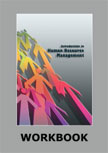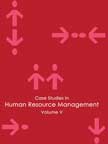Southwest Airlines Act II - An Airline in Trouble?
|
|
ICMR HOME | Case Studies Collection
Case Details:
Case Code : HROB061
Case Length : 13 Pages
Period : 2001 - 2004
Pub Date : 2004
Teaching Note :Not Available
Organization : Southwest Airlines
Industry : Aviation
Countries : USA
To download Southwest Airlines Act II - An Airline in Trouble case study
(Case Code: HROB061) click on the button below, and select the case from the list of available cases:

Price:
For delivery in electronic format: Rs. 400;
For delivery through courier (within India): Rs. 400 + Rs. 25 for Shipping & Handling Charges
» Human Resource and Organization Behavior Case Studies
» HRM Short Case Studies
» View Detailed Pricing Info
» How To Order This Case
» Business Case Studies
» Area Specific Case Studies
» Industry Wise Case Studies
» Company Wise Case Studies

Please note:
This case study was compiled from published sources, and is intended to be used as a basis for class discussion. It is not intended to illustrate either effective or ineffective handling of a management situation. Nor is it a primary information source.
Chat with us

Please leave your feedback

|
|




<< Previous
"The challenges in the future are us."
-Gary Kelly, CEO of Southwest Airlines, in 20041.
"It's worth asking whether Southwest is finally facing the
same issues and challenges that legacy carriers have experienced for some time.
We believe there is a risk that as a generational change occurs and the oldest
Southwest employees retire (who remember the early years of struggle), the
company's low-cost culture will change."
-William Greene, an analyst at Morgan Stanley, in 20042.
CEO Resigns
|
James Parker (Parker), the CEO and vice chairman of Southwest Airlines Co.
(Southwest) announced his resignation from the airline, in July 2004. The news
came as a surprise to company insiders as well as analysts, who did not expect
that Parker would step down just three years after taking over from Herb
Kelleher (Kelleher), who had an almost iconic status at the airline. Southwest
announced that Gary Kelly (Kelly), the airline's Chief Financial Officer and
executive vice president would be taking over as CEO immediately. In a
statement, Kelleher, who was the chairman, said that Southwest's board had
accepted Parker's resignation "with both deep regret and profound gratitude."3
|

|
He also said that he had great hopes on Kelly, under whose guidance
Southwest had achieved the strongest balance sheet in the US airline
industry.
Both Parker and Southwest, maintained that the resignation was due to
personal reasons. Parker said that the job was too 'draining' for him and
that he did not feel he could cope with it any more. "Sometimes you feel
like you've given all you can give," he said.4
|
|
However, certain analysts believed that there was more to it than
that. They linked Parker's resignation to the difficult time he had
in the negotiations with the airline's flight attendants union, in
which he was involved since 2002.
In early 2004, Parker had to withdraw from these negotiations,
because he said the discussions were getting too personal and
critical. Kelleher had to be brought in before a tentative agreement
could be reached in 2004. Certain analysts said that this affected
Parker's credibility among employees, at a company renowned for its
harmonious labor relations. |
"You would certainly think that the troubles he's had with
the unions may have led to his departure," said Bill Warlick, a senior airline
analyst at Fitch Ratings in Chicago.5
Southwest Airlines Act II - An Airline in Trouble?
- Next Page>>
|
|









